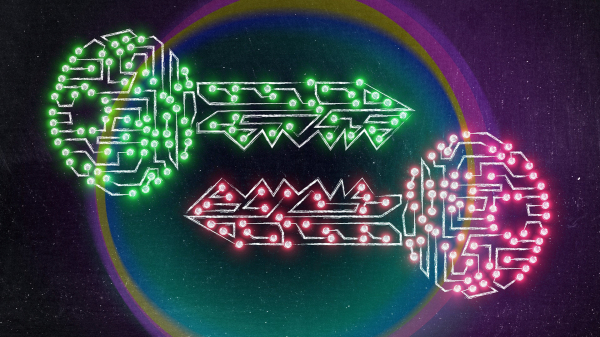Suche
Beiträge, die mit backdoor getaggt sind
by Ethan Shone in OpenDemocracy @openDemocracy
@BBC5Live
@BBCRadio4
@guardian @Independent @thetimes
“Secretive new political firm set up by ‘posh’ George Cottrell raises ‘real red flags’, anti-corruption expert warns”
https://www.opendemocracy.net/en/dark-money-investigations/george-cottrell-nigel-farage-reform-geostrategy-international-unlimited-company-donations/?utm_source=SEGMENT%20-%20Newsletter%3A%20oD%20weekly&utm_medium=email&utm_campaign=Aristo-fraudster%20with%20ties%20to%20Farage%20sets%20up%20new%20firm%20%F0%9F%91%80&_kx=EcR_0PBBjz9tMvgFy-RHwtdMI7XlxshhNNvcUHo9g2o.YjCYwm
#Press #UK #Politics #Farage #Reform #Cottrell #Fraud Corruption #AntiCorruption #Cryptocurrency #Laundering #Geostrategy #Donations #Backdoor
Britische Überwacher verlangen weltweiten Zugriff auf Apple-Backups. Apple darf das nicht bestätigen und ist damit offenbar kein Einzelfall.
https://www.heise.de/news/Auch-Google-kann-britischen-Ueberwachungsbefehl-nicht-verleugnen-10318842.html?wt_mc=sm.red.ho.mastodon.mastodon.md_beitraege.md_beitraege&utm_source=mastodon
#Apple #Google #Backdoor #Überwachung #Verschlüsselung #news
- #K9Mail developer quits Mozilla, thanks @cketti for all the good work
- #surveillance laws want #backdoor access in #France again
- #FOSSGIS 2025 in March, get the app
- #onionshare crash fix soon
- #RiMusic might be in danger
- #SimpleX has group growing pains
- #Termux GUI is finally available
- #Threema Libre reacts
- #VLC with Remote Access
- #XScreenSaver has nice privacy policy
Click for +218 lines of news: https://f-droid.org/2025/02/27/twif.html

Saving screens | F-Droid - Free and Open Source Android App Repository
This Week in F-DroidTWIF curated on Thursday, 27 Feb 2025, Week 9F-Droid coreTermux:GUI, A plugin for Termux to use the Android GUI from terminal application...f-droid.org
The U.K. news cannot be seen in isolation and follows years of battling between big tech and governments over warranted, legal access to encrypted messages and content to fuel investigations into serious crimes such as terrorism and child abuse.
As I reported in 2020, “it is looking ever more likely that proponents of end-to-end security, the likes of Facebook and Apple, will lose their campaign to maintain user security as a priority.” It has taken five years, but here we now are.
The last few weeks may have seemed to signal a unique fork in the road between the U.S. and its primary Five Eyes ally, the U.K. But it isn’t. In December, the FBI and CISA warned Americans to stop sending texts and use encrypted platforms instead. And now the U.K. has forced open iCloud to by threatening to mandate a backdoor. But the devil’s in the detail — and we’re fast approaching a dangerous pivot."
https://www.forbes.com/sites/zakdoffman/2025/02/24/fbis-new-iphone-android-security-warning-is-now-critical/
#USA #FBI #CyberSecurity #Encryption #Privacy #UK #CISA #Apple #Backdoor

FBI Warns iPhone, Android Users—We Want ‘Lawful Access’ To All Your Encrypted Data
UK forces Apple to provide encrypted data to security agencies—is America next?Forbes
😀💪🏼
https://swedenherald.com/article/signals-ceo-then-were-leaving-sweden
#Datenschutz

Signal's CEO: Then We're Leaving Sweden
The government wants Signal and Whatsapp to be forced to store messages sent using the appsTT (Sweden Herald)
https://blog.thenewoil.org/how-the-uk-is-weakening-safety-worldwide
#Apple #ADP #politics #backdoor #cybersecurity #privacy #blog

How the UK is Weakening Safety Worldwide
This week, the UK put the entire world at risk. I understand that may sound like alarmist hyperbole, but follow me. To understand, we hav...The New Oil
Die aktuelle 𝗔𝗽𝗽𝗹𝗲-𝗗𝗲𝗯𝗮𝘁𝘁𝗲 zeigt erneut, wie fragil digitale #𝗣𝗿𝗶𝘃𝗮𝘁𝘀𝗽𝗵ä𝗿𝗲 ist. Wer sich und seine Daten schützen will, sollte Alternativen nutzen und nicht blind Big-Tech vertrauen. Eine eigene Cloud wie #𝗡𝗲𝘅𝘁𝗰𝗹𝗼𝘂𝗱 oder ein #𝗡𝗔𝗦 ist ein wichtiger Schritt hin zur digitalen Unabhängigkeit – ohne 𝗛𝗶𝗻𝘁𝗲𝗿𝘁ü𝗿𝗲𝗻, ohne Ü𝗯𝗲𝗿𝘄𝗮𝗰𝗵𝘂𝗻𝗴, mit voller 𝗞𝗼𝗻𝘁𝗿𝗼𝗹𝗹𝗲.
😀✌🏼
https://winfuture.de/news,148696.html
#Datenschutz #Security #Verschlüsselung #Apple #Backdoor

Das Ende der Verschlüsselung? Apple soll UK vollen Cloud-Zugriff geben
Geht es nach der britischen Regierung, muss Apple in seine Dienste eine Hintertür integrieren, mit der die Behörden die Cloud-Accounts aller Apple-Kunden einsehen können.Roland Quandt (WinFuture.de)
IT-security researchers at ESET have exposed a malicious campaign by the Russia-linked RomCom group, which combined two previously unknown (zero-day) vulnerabilities to compromise targeted systems including Windows and Firefox.
https://www.welivesecurity.com/en/eset-research/romcom-exploits-firefox-and-windows-zero-days-in-the-wild/
#firefox #windows #zerodays #backdoor #it #security #privacy #engineer #media #tech #news
RomCom exploits Firefox and Windows zero days in the wild
ESET Research details the analysis of a previously unknown vulnerability in Mozilla products exploited in the wild and another previously unknown Microsoft Windows vulnerability, combined in a zero-click exploit.www.welivesecurity.com



![[ImageSource: ESET]
RomCom Victims Heatmap
ESET’s investigation shows that RomCom targeted various sectors, including government entities in Ukraine, the pharmaceutical industry in the US and the legal sector in Germany, for both espionage and cybercrime purposes. The group, also known as Storm-0978, Tropical Scorpius or UNC2596, is known for both opportunistic attacks and targeted espionage.
From October 10th to November 4th, ESET’s data showed that users visiting these malicious websites were primarily located in Europe and North America, with the number of victims ranging from one to as many as 250 in some countries. [ImageSource: ESET]
RomCom Victims Heatmap
ESET’s investigation shows that RomCom targeted various sectors, including government entities in Ukraine, the pharmaceutical industry in the US and the legal sector in Germany, for both espionage and cybercrime purposes. The group, also known as Storm-0978, Tropical Scorpius or UNC2596, is known for both opportunistic attacks and targeted espionage.
From October 10th to November 4th, ESET’s data showed that users visiting these malicious websites were primarily located in Europe and North America, with the number of victims ranging from one to as many as 250 in some countries.](https://friendica-leipzig.de/photo/preview/600/314593)
![[ImageSource: ESET]
RomCom Attack Flow
The exploit chain worked by first redirecting users to fake websites, which used domains designed to appear legitimate and included the names of other organizations, before sending them to a server hosting the exploit code.
These fake sites often used the prefix or suffix “redir” or “red” to a legitimate domain, and the redirection at the end of the attack took the victims to the legitimate website, hiding the attack. Once the exploit successfully ran, it installed RomCom’s custom backdoor, giving the attackers remote access and control over the infected machine.
"The compromise chain is composed of a fake website that redirects the potential victim to the server hosting the exploit and should the exploit succeed, shellcode is executed that downloads and executes the RomCom backdoor," said ESET researcher Damien Schaeffer. [ImageSource: ESET]
RomCom Attack Flow
The exploit chain worked by first redirecting users to fake websites, which used domains designed to appear legitimate and included the names of other organizations, before sending them to a server hosting the exploit code.
These fake sites often used the prefix or suffix “redir” or “red” to a legitimate domain, and the redirection at the end of the attack took the victims to the legitimate website, hiding the attack. Once the exploit successfully ran, it installed RomCom’s custom backdoor, giving the attackers remote access and control over the infected machine.
"The compromise chain is composed of a fake website that redirects the potential victim to the server hosting the exploit and should the exploit succeed, shellcode is executed that downloads and executes the RomCom backdoor," said ESET researcher Damien Schaeffer.](https://friendica-leipzig.de/photo/preview/600/314595)